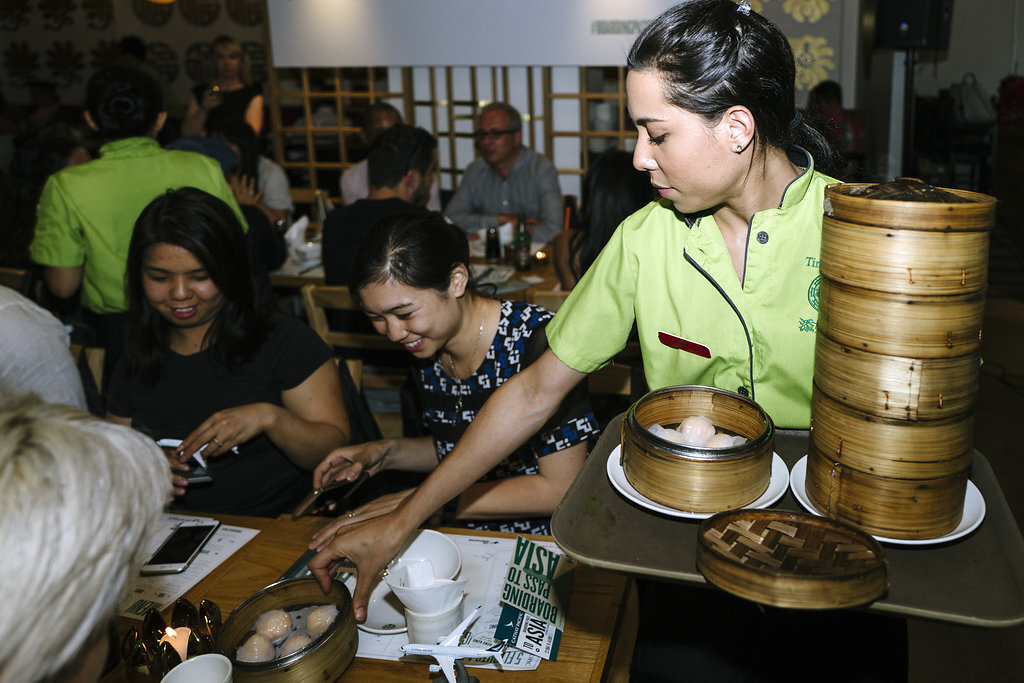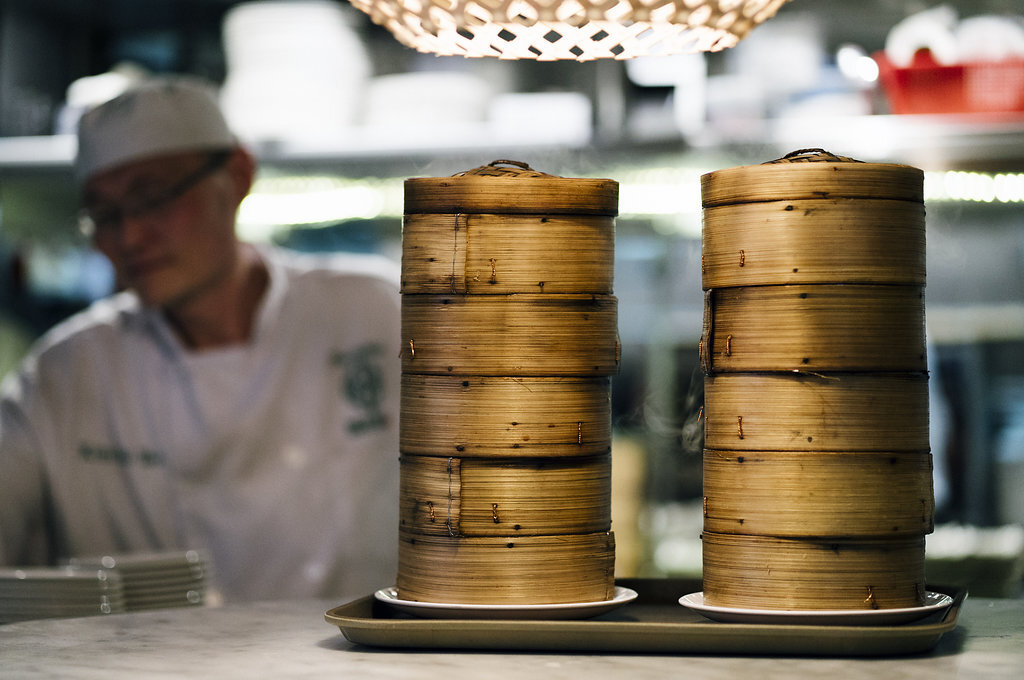Tony Chan, Tim Ho Wan
Three pendants dangle with purpose from Tony’s neck. “This is Burmese jade,” he says pointing to the Chinese chimera hanging from one of the cords, “it’s like 5 mythical animals combined into one. It wards of spirits and bad luck.” The first couple buttons on his fitted, yellow, shirt lay undone and it’s impossible for your own eyes not to linger for a second more on the veins jutting out from his protruding arm muscles. Age has not touched him and he refuses to let it, declining to even say at what age he left Hong Kong, the city where he was born.
As the manager of the USA’s only Tim Ho Wan, a Michelin-starred dim-sum concept hailing from Hong Kong, Tony identifies himself as a “100% Chinese New Yorker”. Raised at the crossroads of diversity and tradition in a sea of yellow taxis, his voice is raspy and a slightly audible Chinese accent darts quickly to hide behind a stiff New York drawl when he tells me that he’s “not a big fan of fusion food,” for reasons that will soon become boldly apparent.
Photo by Jesse Hsu
Citing his Cantonese grandmother’s constant cooking as the basis for his interest in food, he smiles when he tells me that, “I was told by my sister’s that I had a huge appetite and consumed everything that I could get my hands on.” After spending years in the restaurant business along with a five year stint in the women’s shoe department at Macy’s, Tony has groomed himself to be the living embodiment of Tim Ho Wan and a truly bad-ass manager. “I felt like if I could overcome a women’s shoe department on Black Friday, I could do anything,” he said.
While decisive enough to be able to “put together a mean outfit, shoes and everything, top to bottom,” Tony doesn’t really have a favorite thing to cook. Pronouncing “cooking” like “cookin’”, he usually ends up preparing for his kids “whatever they want to eat for dinner” because his enjoyment comes from their smiling, satisfied faces. “It makes me feel great,” he said. Understanding cooking to be an expression of personality, Tony knows that the best chefs in the game are usually true characters. “To be a great chef requires dedication and passion in what you do. No matter what field you’re in, you’re not going to take it to the next level without passion,” he said.
For this New Yorker, passion is synonymous with cultural authenticity and having the courage to stick to tradition. He says that at Tim Ho Wan, “we don’t care what you sell. We don’t care if a restaurant opens next door to us. We stick to our roots and be us,” making it hard to tell whether that’s Tim Ho Wan’s concept, or his own. Carrying the same thought process over to all aspects of his life, namely his role as a father, Tony does not believe that his kids are fated to become a part of General Tso’s army of chickens even though they live in New York, which he regards to be “thee most diverse city in the world.”
In a city that celebrates Hanukkah, Chinese New Year, Holi and Comic-Con, Tony perhaps views diversity as an open-armed opportunity to share one’s culture with the world. With food as a means of understanding immigration and identity, he shakes his head at the Chinese-American food served in every neighborhood, in every borough. As is the case with many ethnic foods that seek to please American palates, a process of assimilation takes place out of fear instead of implicit understanding. It’s not just the mystery brown sauce that often gives ethnic foods a bad-rep, it’s the the lack of authenticity and the lack of culture in those dishes.
“Growing up in American society, eventually 3rd and 4th generations will lose our culture and will have no idea what came before, but that doesn’t have to happen. I was pretty much born and raised here and yet I’m raising my children the same way my parents raised me. I’m feeding them foods my mother fed me, I’m talking to them in our mother language, I’m constantly educating them in our culture,” Tony said with gusto. His role at Tim Ho Wan, a restaurant that serves “traditional dim sum which is no longer in existence,” thus seems to fit like the glass slipper on the foot of the American Dream. The man is proof that you can be Chinese, AND a New Yorker, all while keeping it 100. “This is the mecca of the food industry,” he says before asking, “why not New York?”




